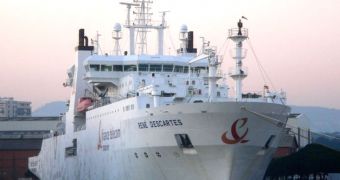In case of an emergency, the international infrastructure underlying the operations of the Internet could fail, security experts warn. They say that immediate measures are needed to ensure an uninterrupted flow of data between agencies and governments around the world in case something goes awry.
In the United States, this sensitive infrastructure has already been secured, in the sense that the federal government, military and intelligence agencies, and rescue workers will never fall out of contact with each other.
But the situation is unfortunately a lot worst in the rest of the world. Countries are now facing the prospect of not being able to communicate beyond their borders in case of an international emergency.
EastWest Institute Distinguished Fellow Karl Rauscher, a top security expert, says that the international community needs to take note of this fact, and then act to remedy it.
Rauscher was one of the individuals who was in charge of developing the new US strategy for communications-infrastructure protection, that the country set in place following the terrorist attacks of September 11, 2001.
In a recent interview, the expert says that the main threat comes from the Internet itself, in the sense that the ever-growing demand for high-bandwidth access to the Web is jeopardizing its infrastructure.
The issues are more often than not geographical in nature. When data need to pass through from Europe to the US, for example, all information sent by two continents need to be channeled within a small set of cables that runs underneath the Atlantic.
These are also what the security expert terms “single point of failure,” where a strike could do the most damage. The most logical solution to this, he says, is the construct more webs under the seas.
This is not as difficult to do now as it was in the past, and the costs are more than worth it. Specialized ships can lay an entire ocean's worth of cables in a single sortie, and more than one nation can contribute to the effort.
“Nearly 100 percent of the world’s inter-continental electronic communications traffic is carried by the undersea cable infrastructure,” says a report by the Reliability of Global Undersea Communications Cable Infrastructure initiative.
“The probability of a global or regional failure is very low; however, it is not zero. The impact of such a failure on international security and economic stability could be devastating,” the document adds.
There are also added benefits to installing new cable other than security. More volumes of data would flow faster between locations thousands of miles apart.
This would also aid scientific endeavors such as those of the @Home type. Computers from around the world are used to process large amounts of data, but some of the computers are a lot harder to get to than others, LiveScience reports.

 14 DAY TRIAL //
14 DAY TRIAL //